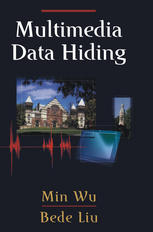

Most ebook files are in PDF format, so you can easily read them using various software such as Foxit Reader or directly on the Google Chrome browser.
Some ebook files are released by publishers in other formats such as .awz, .mobi, .epub, .fb2, etc. You may need to install specific software to read these formats on mobile/PC, such as Calibre.
Please read the tutorial at this link: https://ebookbell.com/faq
We offer FREE conversion to the popular formats you request; however, this may take some time. Therefore, right after payment, please email us, and we will try to provide the service as quickly as possible.
For some exceptional file formats or broken links (if any), please refrain from opening any disputes. Instead, email us first, and we will try to assist within a maximum of 6 hours.
EbookBell Team

4.1
90 reviewsThe digital information revolution has brought about profound changes in our society and our life. New devices and powerful software have made it possible for consumers worldwide to create, manipulate, share, and enjoy the multimedia information. Internet and wireless networks offer ubiquitous channels to deliver and to exchange multimedia information for such pur poses as remote collaboration, distant learning, and entertainment. With all these advances in multimedia coding and communication technologies over the past decade, the major hurdle for allowing much broader access of multimedia assets and deployment of multimedia services no longer lies with bandwidth-related issues, but with how to make sure that content is used for its intended purpose by its intended recipients. The core issue then be comes the development of secure management of content usage and delivery across communication networks. Data hiding and digital watermarking are promising new technologies for multimedia information protection and rights management. Secondary data can be embedded imperceptibly in digital multimedia signals for a variety of applications, including ownership protection, authentication, access con trol, and annotation. Data hiding can also be used to send side information in multimedia communication for providing additional functionalities or for enhancing performance. The extraction of the embedded data mayor may not need knowledge of the original host media data. In addition to im perceptibility, robustness against moderate processing such as compression is also an important consideration.